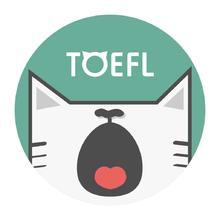 返回
教育头条
返回
教育头条

托福综合写作阅读解析 托福阅读
托福综合写作阅读解析,借以说明熟悉各种题材,有各种背景知识的重要性。前十个练习基本上是热身级的学习,连词汇都蛮亲切的,所以阅读段精读、快速是很基本的要求。但是各个题材,如我们之前讲的,有背景的知识,阅读理解快速很多,比如勃朗,比如百科全书,有背景的,容易理解。再比如本篇,熟悉这些词汇和背景,在理解的基础上速度要轻松很多。不理解的话,从零开始熟悉阅读段内容,需要阅读能力的积累。
词汇:internal-combustion
Car manufacturers and governments have been eagerly seeking a replacement for the automobile's main source of power, the internal-combustion engine. By far the most promising alternative source of energy for cars is the hydrogen-based fuel-cell engine, which uses hydrogen to create electricity that, in turn, powers the car. Fuel-cell engines have several advantages over internal-combustion engines and will probably soon replace them.
One of the main problems with the internal-combustion engine is that it relies on petroleum, either in the form of gasoline or diesel fuel. Petroleum is a finite resource; someday, we will run out of oil. The hydrogen needed for fuel-cell engines cannot easily be depleted. Hydrogen can be derived from various plentiful sources, including natural gas and even water. The fact that fuel-cell engines utilize easily available, renewable resources makes them particularly attractive.
Second, hydrogen-based fuel cells are attractive because they will solve many of the world's pollution problems. An unavoidable by-product of burning oil is carbon dioxide, and carbon dioxide harms the environment. On the other hand, the only byproduct of fuel-cell engines is water.
Third, fuel-cell engines will soon be economically competitive because people will spend less money to operate a fuel-cell engine than they will to operate an internal-combustion engine. This is true for one simple reason: a fuel-cell automobile is nearly twice as efficient in using its fuel as an automobile powered by an internal-combustion engine is. In other words, the fuel-cell powered car requires only half the fuel energy that the internal-combustion powered car does to go the same distance.
词汇:internal-combustion
Car manufacturers and governments have been eagerly seeking a replacement for the automobile's main source of power, the internal-combustion engine. By far the most promising alternative source of energy for cars is the hydrogen-based fuel-cell engine, which uses hydrogen to create electricity that, in turn, powers the car. Fuel-cell engines have several advantages over internal-combustion engines and will probably soon replace them.
One of the main problems with the internal-combustion engine is that it relies on petroleum, either in the form of gasoline or diesel fuel. Petroleum is a finite resource; someday, we will run out of oil. The hydrogen needed for fuel-cell engines cannot easily be depleted. Hydrogen can be derived from various plentiful sources, including natural gas and even water. The fact that fuel-cell engines utilize easily available, renewable resources makes them particularly attractive.
Second, hydrogen-based fuel cells are attractive because they will solve many of the world's pollution problems. An unavoidable by-product of burning oil is carbon dioxide, and carbon dioxide harms the environment. On the other hand, the only byproduct of fuel-cell engines is water.

Third, fuel-cell engines will soon be economically competitive because people will spend less money to operate a fuel-cell engine than they will to operate an internal-combustion engine. This is true for one simple reason: a fuel-cell automobile is nearly twice as efficient in using its fuel as an automobile powered by an internal-combustion engine is. In other words, the fuel-cell powered car requires only half the fuel energy that the internal-combustion powered car does to go the same distance.
上述就是教育宝头条介绍的托福综合写作阅读解析 托福阅读完整信息,想要查看更多的托福资讯,敬请关注我的微信18560125702,还可免费获取学习攻略哦!返回教育宝头条
【免责声明】本文仅代表作者本人观点,与教育宝无关。教育宝对文中陈述、观点判断保持中立,不对所包含内容的准确性、可靠性或完整性提供任何保证。请读者仅作参考,特此声明!





